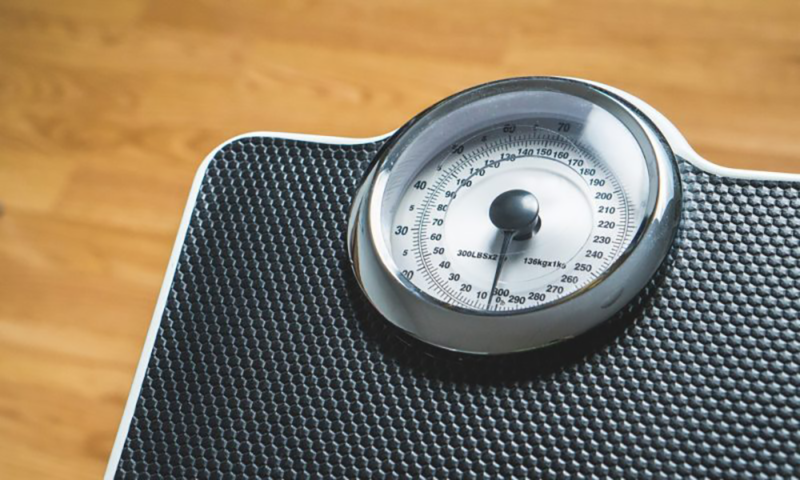Images of the bathroom or doctor’s office scale conjure anxiety for many. Have you ever put off an appointment because you didn’t want to be weighed? Ever throw out your bathroom scale in a moment of defiance or step on it, only to close your eyes before looking at the number?
Why the Scale Makes Us Anxious
Our complicated relationship with the scale is largely a product of weight stigma. All our lives, we’re taught to associate excess weight with feelings like “bad,” “gross,” “unattractive,” or “less than.” We think this will help us “stay on the wagon” and be successful at behaviors that will keep our weight low. It’s like negative enforcement, but we couldn’t be more wrong.
Research shows that weight stigma actually fuels unhealthy behaviors rather than encouraging healthy ones. Perhaps this is one reason for why more than half of diets fail, or why we feel as if we’ve failed on a whole new level of “unacceptable” when we see the number on the scale creep up — even if we’ve tried our hardest to make the opposite happen.
A Tool, Not a Value
Still, your weight does matter. It matters for your health. It gives you an objective measure of your health status because excess weight is associated with more than 50 related conditions and can strain your whole body. But the scale isn’t meant to scare you; it’s simply meant to guide you in navigating your health journey with a general idea of where you’re at.
Let’s take Body Mass Index (BMI), for example. BMI is calculated using your weight (in pounds) and your height (in inches). The number assigns you to a weight category, which is a helpful tool for assessing your health and talking about your weight with a healthcare provider.
But we also know that BMI isn’t a perfect tool. It often doesn’t take factors like muscle mass or body composition into consideration. Someone with a BMI of 35 (overweight) might be in near perfect health if they have a very muscular build.
The scale works similarly. While it’s helpful for tracking your weight and assessing your health, it often doesn’t take into account the same factors — or even factors like how hard you work, genetics or biology, your mental health, or even what kind of medications you’re on. The bottom line? It’s an object that is useful for measuring your weight. It doesn’t hold your entire value.
Facts about the Scale
If you need help staying empowered on your journey with weight, remember these facts:
- Weight fluctuates daily from many factors, some of which you can’t control.
- The weight of your body can change throughout one single day.
- The scale shows a number, not your worth or value.
- Your healthiest weight may vary from someone else’s.
- The scale can indicate progress or room for improvement — that’s it.
- The scale is an object. Therefore, it’s objective.
- The scale doesn’t account for changes in muscle.
- You are not what you weigh or what the scale shows you.
If you’re concerned about your weight, talk to your healthcare provider and work together on a plan that will improve your health. Remember to focus on your health, as everything else falls secondary. To start the conversation with your provider today, CLICK HERE.





